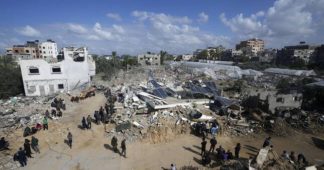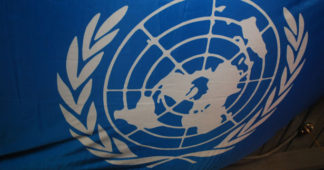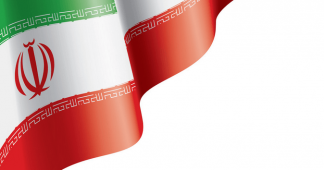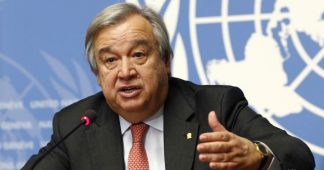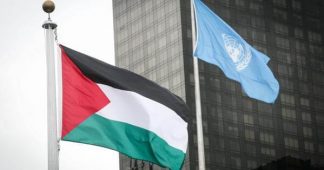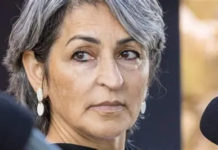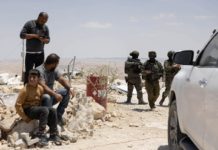A delegation of Arab-Islamic countries also met Chinese and Russian foreign ministers earlier this week in order to push for an end of of Israeli violence against Palestinians and lasting peace in the region
by Abdul Rahman
November 22, 2023
Leaders of the BRICS bloc called for an immediate end to the hostilities in Palestine in an online meeting held on Tuesday, November 21.
The meeting was attended by the heads of government of Brazil, Russia, China, South Africa, Saudi Arabia, Iran, Ethiopia, Egypt, and the UAE. The UN Secretary General Antonio Guterres also joined the meeting. India and Argentina were represented by their foreign ministers.
The meeting was chaired by South African President Cyril Ramaphosa. Though the meeting failed to issue a joint statement most of the leaders in the meeting referred to the targeting of civilians in Gaza by Israel as “war crimes” and asked for immediate humanitarian ceasefire.
The chair’s summary issued after the meeting condemned “any kind of individual or mass forcible transfer and deportation of Palestinians from their own land.” It also called any such transfer a breach of the Geneva Convention and war crimes.
Ramaphosa also said that, “a just and lasting solution to the Palestinian-Israeli conflict can be achieved by peaceful means.”
Chinese president Xi Jinping said that, “the root cause of the Palestinian-Israeli situation is the fact that the right of Palestinian people to statehood, their right to existence, and their right of return have long been ignored” for all these years.
Russian president Vladimir Putin blamed US diplomacy for the crisis and called for the international community to join forces “in order to ease tensions, ensure a ceasefire and to find a political solution to the Israeli-Palestinian conflict.”
Israel’s war on Gaza has killed more than 14,100 Palestinians and injured over 30,000 since October 7. More than 75% of Gaza’s total population has also been forcibly displaced.
Arab-Islamic delegation visits China and Russia
Both Russia and China were recently visited by a delegation of Arab-Islamic countries with the intent of increasing pressure and calls for an end of the Israeli war in Gaza and for a lasting solution of the conflict.
The delegation was led by Saudi Arabia’s Foreign Minister Faizal bin Farhan al-Saud. Foreign ministers from Jordan, Egypt, Indonesia, and Palestine were also part of the delegation along with the chairman of the Organization of Islamic Conference (OIC), Hissen Brahim Taha.
The delegation was visiting these countries as part of its attempts to carry out the mandate of the Arab-Islamic summit held on November 12 in Riyad. The summit was held to devise a common path to deal with the Israeli war in Gaza and push the global community to act to end the Israeli occupation.
The delegation rejected Israeli claims of self defense and asked for immediate end of the war in Gaza, an end of Israeli blockade of the Palestinian territory, the immediate release of all Palestinian prisoners, and the initiation of a peace process to establish an independent Palestinian state.
The delegation met Chinese Foreign Minister Wang Yi in Beijing on Monday. They raised the question of accountability of Israel for its repeated violations of international law in Gaza and other occupied territories apart from looking for ways to impose an immediate ceasefire in Gaza.
The delegation also met Chinese Vice President Han Zheng who assured the delegation that his country will do everything to implement all the relevant resolutions of the UN on Palestine.
The Arab-Islamic delegation met with Russian Foreign Minister Sergei Lavrov in Moscow. Lavrov reiterated the Russian position on the need of immediately starting a peace process “regarding the establishment of a Palestinian state.” He also underlined that so far most of the talks held to achieve peace in the region have failed because of a lack of representation from Arab countries.
We remind our readers that publication of articles on our site does not mean that we agree with what is written. Our policy is to publish anything which we consider of interest, so as to assist our readers in forming their opinions. Sometimes we even publish articles with which we totally disagree, since we believe it is important for our readers to be informed on as wide a spectrum of views as possible.
